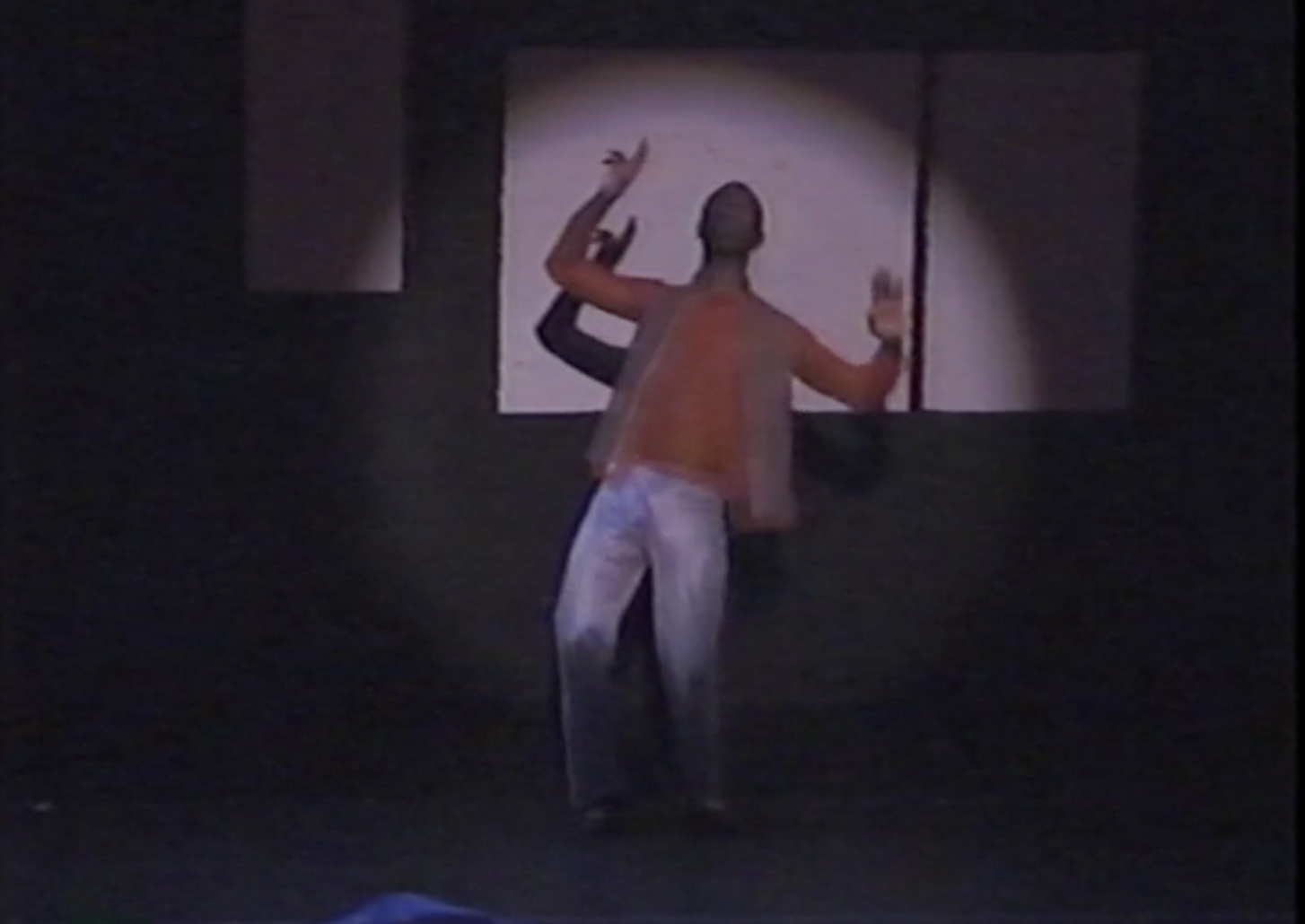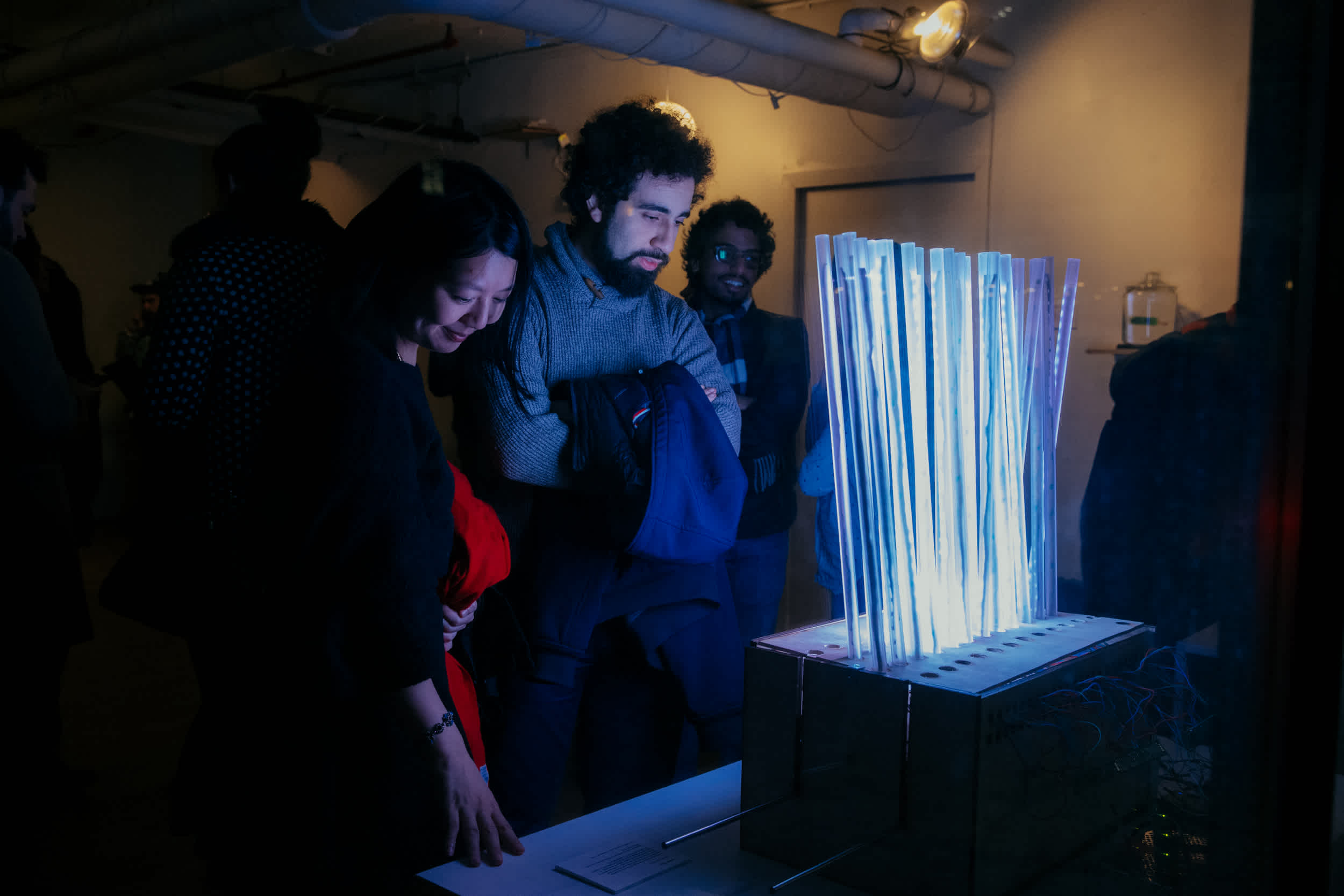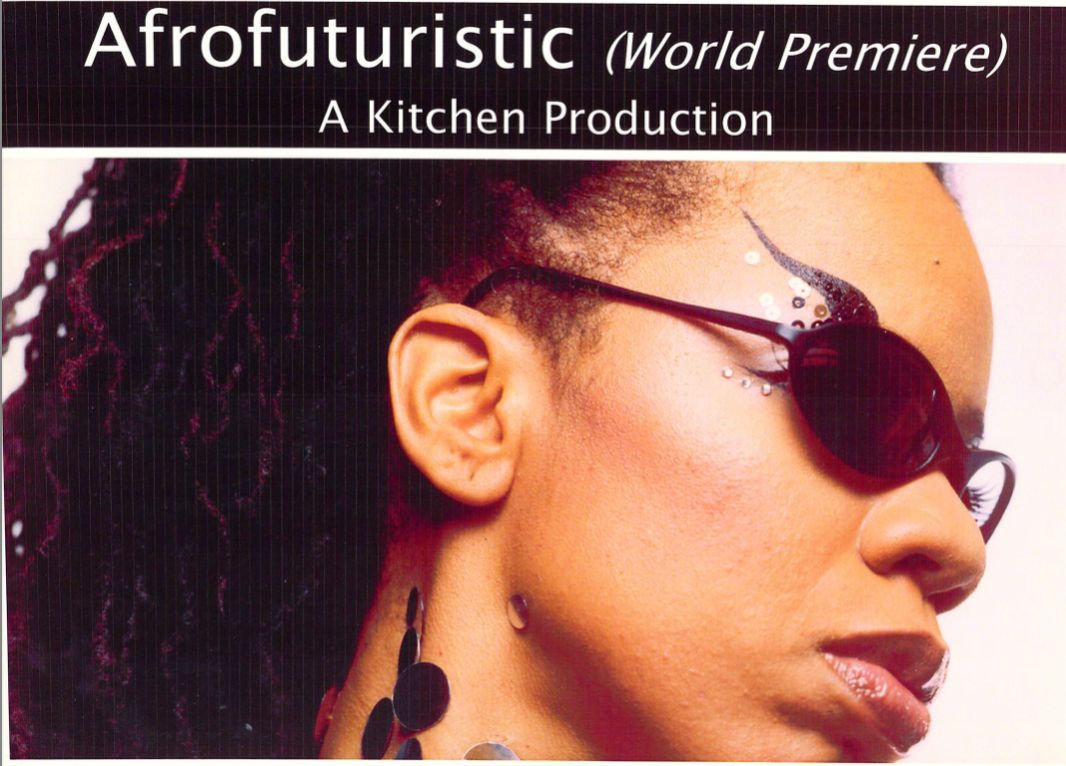
Credits:
By chaun webster, Writer. Commissioned by Lillian-Yvonne Bertram as part of the The Kitchen L.A.B. Research Residency x Simons Foundation x School for Poetic Computation.
September 20, 2023
When I consider the tools we are often equipped with for knowing, how they conscript the object of analysis to measurement, to what falls within the borders of a single definition, I am no longer surprised by the discomfort felt with what falls outside of genre and exceeds grammar.
Tracie Morris’s Afrofuturistic (2003)—made in collaboration with David Thomson (choreographer and performer), Graham Haynes (music), Michelle Halsell (visual design), and Laurie Carlos (director)—is a study in excess, which is not as much to say what of this performance followed protocols of the moderate or not as it is to name my reading of it as one that disregards the sign and that travels beyond a situated position of meaning. And ain’t that Blackness? That which is beyond referent, or, as poet and scholar David Marriott puts it, “there is no meaning which is equivalent to it.” (1) It is of the Out and the Gone (2), the double exposure haunting the precincts of perception. Afrofuturistic begins in the blackness of the stage, in a screen of letters serving as background and moving like code, and then there is the code of Morris’s corporeality, her body cutting through the stage, and horns add another layer, themselves a grammar, and also that which might exceed it. There is something of the opaque here, an effort to keep a thing hidden, underneath the floating words of “a minor magician” (3) or the wry smile of Morris as she scans the room seeing who is ready to travel the space ways with her. (4) And here I am reminded of Sun Ra, of his “But no earthmen here / Matter fact / Ain’t no man here / Ain’t no woman there / Ain’t nobody there.” (5) Morris is swaying on that stage both more and less than one (6) saying “out of my periphery, I think I see a flurry of wings.” The periphery, or that point in our vision where it is believed our imagination fills in the gaps of missing sensory data, she is there, nestled in the “periphery” and in the “flurry of wings” and in excess of all of these, she is also nowhere at all.
Bio
Chaun Webster is a poet and graphic designer living in Minneapolis whose work is attempting to put pressure on the spatial and temporal limitations of writing, of the english language, as a way to demonstrate its incapacity for describing blackness outside of a regime of death and dying. Webster’s debut book, Gentry!fication: or the scene of the crime, was published by Noemi Press in 2018, and received the 2019 Minnesota Book Award for poetry. Wail Song: wading in the water at the end of the world, Webster's second collection, was published by Black Ocean, April 2023.
FOOTNOTES
(1) David Marriott and Frank Wilderson, “DS Marriott in conversation with Frank Wilderson III,” City Light Books, April 28, 2022, https://www.youtube.com/watch?v=Mw20cLg-iic.
(2) See Amiri Baraka, Tales of the Out & the Gone (Brooklyn: Akashic, 2006).
(3) Quotation from Tracie Morris, Afrofuturistic, 2003.
(4) For more on the uses of opacity, see Manthia Diawara, “CONVERSATION WITH ÉDOUARD GLISSANT ABOARD THE QUEEN MARY II (AUGUST 2009),” trans. Christopher Winks. Also see Imani Roach, “Kameelah Rasheed: Who Will Survive in America?,” Guernica, March 6, 2017.
(5) Sun Ra, “In Orbit,” in Sun Ra, This Planet Is Doomed: The Science Fiction Poetry of Sun Ra (Brooklyn: Kicks Books, 2011), 30.
(6) See Fred Moten, Stolen Life (Durham: Duke University Press, 2018).
FUNDING SUPPORT
The Kitchen L.A.B. Research Residency is generously supported by the Simons Foundation, whose mission is to advance the frontiers of research in mathematics and the basic sciences. The Foundation’s Science, Society and Culture division seeks to provide opportunities for people to forge a connection to science—whether for the first time or a lifetime. Through their initiatives, they work to inspire a feeling of awe and wonder, foster connections between people and science, and support environments that provide a sense of belonging.


